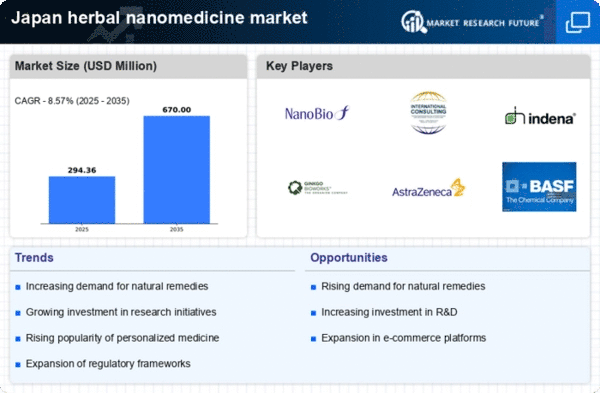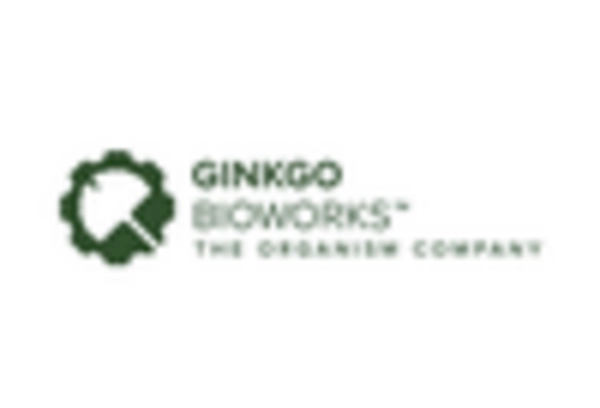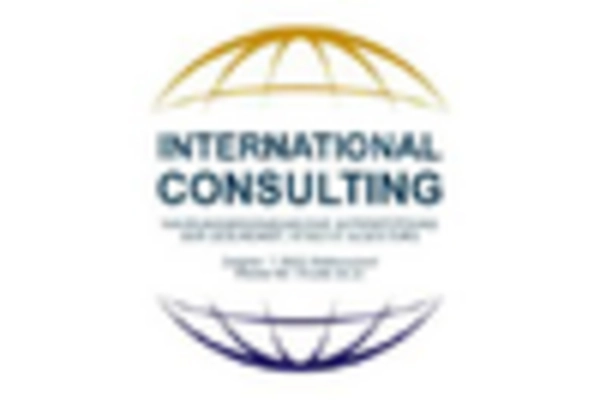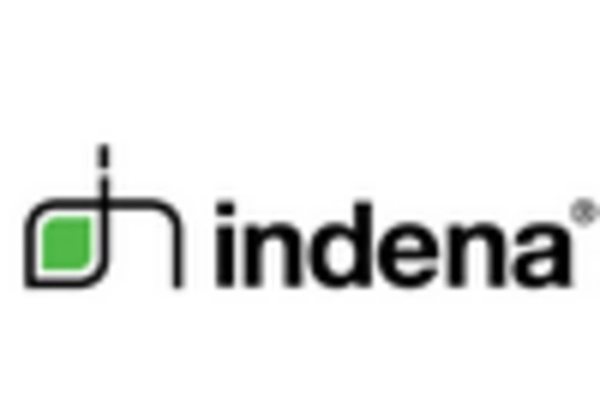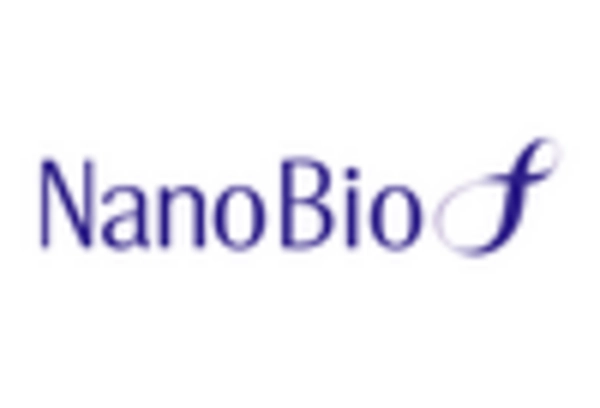Advancements in Nanotechnology
Technological innovations in nanotechnology are significantly impacting the herbal nanomedicine market. In Japan, research institutions and companies are increasingly focusing on developing nanocarriers that improve the delivery of herbal compounds. These advancements allow for enhanced solubility and stability of herbal extracts, which are often limited in their natural form. For instance, the use of liposomes and nanoparticles can increase the therapeutic efficacy of herbal medicines, making them more appealing to both healthcare providers and patients. The market is expected to witness a surge in investment, with estimates suggesting that funding for nanotechnology research in the healthcare sector could reach $500 million by 2026. This influx of resources is likely to accelerate the development of innovative herbal nanomedicine products, further propelling market growth.
Supportive Regulatory Environment
The regulatory landscape in Japan is becoming increasingly favorable for the herbal nanomedicine market. Authorities are recognizing the potential of herbal products enhanced by nanotechnology, leading to streamlined approval processes for innovative therapies. This supportive environment encourages research and development, allowing companies to bring new products to market more efficiently. Recent policy changes have also aimed at promoting the use of traditional medicine, which complements the growth of herbal nanomedicine. As a result, the market is likely to see a rise in the number of approved herbal nanomedicine products, fostering competition and innovation. The potential for quicker market entry could lead to an estimated increase in market size by 15% over the next few years, reflecting the positive impact of regulatory support.
Rising Demand for Natural Remedies
The increasing consumer preference for natural and organic products is driving the herbal nanomedicine market in Japan. As health-conscious individuals seek alternatives to synthetic pharmaceuticals, the demand for herbal solutions is on the rise. This trend is reflected in a survey indicating that approximately 70% of Japanese consumers prefer herbal remedies for minor ailments. The herbal nanomedicine market is likely to benefit from this shift, as it combines the efficacy of traditional herbal medicine with advanced nanotechnology. This integration not only enhances the bioavailability of active compounds but also ensures targeted delivery, making treatments more effective. Consequently, the market is projected to grow at a CAGR of around 8% over the next five years, indicating a robust expansion driven by consumer preferences for natural health solutions.
Increasing Investment in Herbal Research
Investment in herbal research is on the rise in Japan, significantly impacting the herbal nanomedicine market. Both public and private sectors are allocating funds to explore the therapeutic potential of herbal compounds, particularly when combined with nanotechnology. This trend is evidenced by a recent government initiative that aims to boost funding for herbal research by 20% over the next three years. Such investments are likely to facilitate the development of new formulations and delivery systems, enhancing the efficacy of herbal medicines. Furthermore, collaborations between universities and pharmaceutical companies are becoming more common, fostering innovation in the herbal nanomedicine market. This influx of research funding and collaboration could lead to breakthroughs that expand the market, potentially increasing its value by $300 million by 2028.
Growing Awareness of Preventive Healthcare
There is a notable shift towards preventive healthcare in Japan, which is influencing the herbal nanomedicine market. As individuals become more aware of the benefits of maintaining health rather than merely treating illness, the demand for preventive solutions is increasing. Herbal nanomedicine offers a unique approach by utilizing natural ingredients that may enhance immune function and overall well-being. Reports indicate that the preventive healthcare market in Japan is projected to grow by 10% annually, with herbal products playing a crucial role in this expansion. This trend suggests that consumers are more inclined to invest in herbal nanomedicine as a proactive measure, thereby driving the market forward. The emphasis on preventive care aligns well with the principles of herbal medicine, which often focuses on holistic health.


